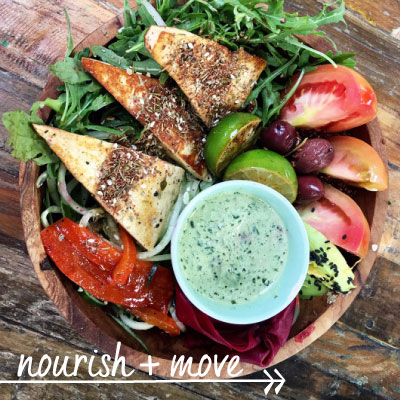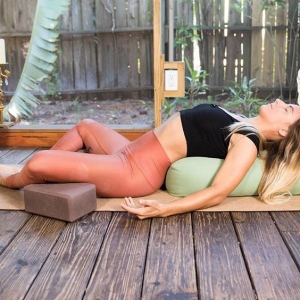
Displaying items by tag: environment
A Movement Rich Life
Katy Bowman spoke at the Ancestral Health Symposium in Queenstown, New Zealand October 2017 on Move Your DNA: Movement Ecology & the Difference Between Exercise & Movement
Here are a couple of exerts:
Movement isn't only affecting your arms, legs, and abs; through a process called mechano-transduction, movement influences the behaviour of your cells.
We are currently experiencing unprecedented sedentarism.
There are local effects of movement, as well as systemic.
Within an active body you can have cellular sedentarism ie running with supportive shoes (your feet have restricted movement), having smoothies & juices instead of chewing whole foods (there is minimal movement of the muscles of the jaw, tongue & face).
The key to increasing our personal movement lies in understanding how movement works & expanding our thoughts & actions away from exercise & towards a movement-rich life.
Katy Bowman has a live event this weekend in Wellington, followed by events in Nelson & Auckland before she heads back home to the States. For more details check out Katy's live events at https://nutritiousmovement.pike13.com/categories/64332
What are you doing regularly to help reduce our plastic use?
Supermarket giant to ban plastic bags
Globally, we use and discard approximately 1 trillion plastic bags each year. In Australia alone, over 7000 plastic bags are dumped into landfill every single minute. The effects of this are great: bags pollute the ocean, choke waterways and are ingested by wildlife.
Given these horrifying statistics, when Australian supermarket giant Woolworths announced in July this year that it would stop giving out single-use plastic bags within 12 months, eco-conscious consumers heaved a collective sigh of relief. Despite its parent companies’ decision, Countdown supermarkets in New Zealand did not follow suit – until now.
By the end of 2018, all Countdown supermarkets will stop giving single-use plastic bags to consumers. “We have been tracking customer sentiment for two years,” says Countdown’s managing director Dave Chambers. “Our most recent research, concluded in August, indicates that 83 per cent of our customers support phasing out single-use plastic carrier bags.”
Instead of offering to sell plastic bags for a small fee, the supermarket will reduce the price of reusable shopping bags to $1. Taking effect from October 9, this initiative is the only way to prevent plastic bags from being used, Chambers maintains. “We’re confident Kiwis will get in behind this change across the country, and we’re committed to making the move from check-out bags as simple for customers as we can,” he says. Other sustainable alternatives, such as selling compostable bags, may also be introduced.
Auckland Mayor Phil Gof has applauded the announcement and encouraged other supermarkets to follow suit. “If other businesses make efforts to reduce plastic bag use and the Government introduces a levy on plastic bags, we can likely cut around 500 to 600 million plastic bags a year out of our waste stream in Auckland alone,” he says.
With fellow New Zealand supermarkets FreshChoice and SuperValue pledging to follow suit, it is estimated that 350 million plastic bags will be eliminated from the country’s waste per year.
MiNDFOOD
The Chemicals In Your Yoga Mat Could Cause Infertility. Here's What To Do About It
August 31, 2017
If you're a woman who regularly practices yoga, a new study published in Environmental Health Perspective last week may have sounded a few alarm bells: Apparently, there are chemicals in yoga mats that can make it more difficult to get pregnant.
These chemicals are called organophosphate flame retardants (PFRs), and they're a class of chemicals found in most yoga mats. So while your mat won't catch fire while you're in downward-facing dog, it probably is slightly toxic. In an attempt to find out what impact PFRs have on fertility, researchers followed 211 women who were trying to get pregnant through in vitro fertilization (IVF).
The researchers tested for metabolites of PFRs in each woman's urine, and they found that the women with higher levels of these metabolites were 31 percent less likely to have the embryo successfully implant in the uterus, 10 percent less likely to achieve fertilization, 41 percent less likely to get pregnant, and a 38 percent less likely to give live birth. Yikes.
Can you do anything about the chemicals you've already been exposed to?
If you hit the yoga mat seven days a week and don't love the results of this study, Aviva Romm, M.D. and natural women's health expert, notes that PFRs aren't only in yoga mats. "Flame retardant chemicals are everywhere," she says. "And yes, it's a real risk. Unfortunately, we can’t do anything about the ones we’ve been exposed to, per se, but we can keep our detox systems and elimination healthy and strong."
Erica Chidi Cohen, doula and co-founder of the reproductive wellness company LOOM, says that you should evaluate how much time you're actually spending on your yoga mat. "I like to get people to adopt a 70/30 rule," she says. "So if someone is working out every single day and using a yoga mat at a studio that probably contains PFRs, buy your own mat. If you’re doing yoga only three or four times a month and don’t want to make the investment, maybe it’s not worth it. So it’s really about how often you’re using that product. But we can and should do our best to avoid them whenever and however we can."
What you should know about PFRs if you're trying to get pregnant.
When it comes to fertility, Cohen says the most important thing women can do is lower their stress levels. "The No. 1 thing we’re trying to reduce for people trying to get pregnant is anxiety," she says. "While that study is helpful—because knowing more about chemicals and solvents and how they impact your fertility is always important—in terms of being alarmed, I wouldn’t necessarily go on red alert, but I would definitely look more closely at every yoga mat I do have and try to make a quick switch. There are tons of great natural yoga mats out there!"
If you're in the market for an all-natural, chemical-free yoga mat, you have options. Manduka has an excellent selection of nontoxic rubber yoga mats, as does Jade and Yoloha, which makes cork yoga mats.
The reality is that while there are plenty of toxic yoga mats, there's no need for a yoga-related meltdown. After all, yoga is supposed to lower your stress—and you can avoid PFRs a lot more easily than you think.
Recipe for a Small Planet
Preserve 2 pristine polar regions
Add equatorial rainforests (intact)
Set aside 4/10ths of the world's oceans
Sprinkle with reallocated military spending
Whisk in 1 energy revolution
Season with sustainable agriculture
Add fresh, clean drinking water
Let cool.
Recipe compliments of GREENPEACE
http://www.greenpeace.org/new-zealand/en/
Contact Leonie Main
m: +64 (0) 274 96 96 33
19B Golf Road, Mount Maunganui 3116, New Zealand
Facebook: Gypset Life






